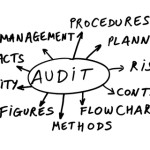 There is a new trend developing within the marketing agency community when it comes to negotiating client contract language – and that is a fairly aggressive attempt to limit the advertiser (client) audit rights and scope. In other words, limiting what the agency is required to have available as “proof” and support for agency billings to the client and agency use of client funds.
There is a new trend developing within the marketing agency community when it comes to negotiating client contract language – and that is a fairly aggressive attempt to limit the advertiser (client) audit rights and scope. In other words, limiting what the agency is required to have available as “proof” and support for agency billings to the client and agency use of client funds.
At a time when there is much talk about the need for transparency and its role in helping to bolster trust and strengthen client-agency relationships, this trend is highly antithetical.
The most common examples of agencies trying to dictate and limit the client’s “Audit Rights” are:
- Limiting the window of time in which an advertiser can conduct the audit. For example, 12 months from date of service or invoice, as opposed to a 3 year window.
- Limiting access to agency financial data and or records, as opposed to full access to information that support agency billings, financial management, and performance. This can include denying access to data such as employee time keeping records, agency overhead or holding company allocations to client, freelance records, prices paid for certain media and agency affiliate company costs.
- Limiting the amount of time the agency is required to retain data and records.
- Limiting the type of audit firm that an advertiser can engage to perform the testing – and or including language that seeks to secure agency approval of advertiser’s auditor selection.
In order to ensure full-transparency into the financial stewardship of funds by the agency and third-party vendors, experience suggests that advertisers must secure client-centric contractual audit terms and conditions. It is our belief that this is an advertiser’s unassailable right. After all, it is the advertiser who bears the risk of non-compliance and sub-standard performance when it comes to the investment and management of their marketing funds. And it is the advertiser who is providing the funding to the agent.
Contract language dealing with Audit Rights should grant advertisers the ability to establish the scope of the audit, deploy an audit team of its choice and to have unfettered access to information necessary to validate agency compliance and or performance (i.e. contract compliance, media performance, etc.). To ensure full transparency, advertiser Audit Rights should extend to the agency holding company and affiliates in any full-disclosure relationship.
As important as securing solid Audit Rights language, within a Client-Agency agreement, is the need for advertisers to exercise those rights on a regular basis. Whether through the deployment of internal audit personnel, engaging independent contract compliance or financial auditors or the use of a media performance audit firm, it is imperative that advertisers monitor and vet agency performance in these areas.
The frequency of such oversight actions can range from annual reviews to quarterly reconciliations to the implementation of continuous monitoring programs to assess the disposition and performance of advertiser funds, while under the control of their agency partners.
Sharing audit findings with both advertiser and agency is highly recommended so that both parties, if necessary, can adjust practices going forward. After all, the goal of an accountability program is to provide improved transparency, assurance, improved process, and stronger client-agency relationships. In the words of Thomas Huxley, the noted 19th century scientist:
“Learn what is true, in order to do what is right.”
If you would like to receive a complimentary review of your organization’s “Audit Rights” contract language please contact Cliff Campeau, Principal at Advertising Audit & Risk Management at ccampeau@aarmusa.com.
